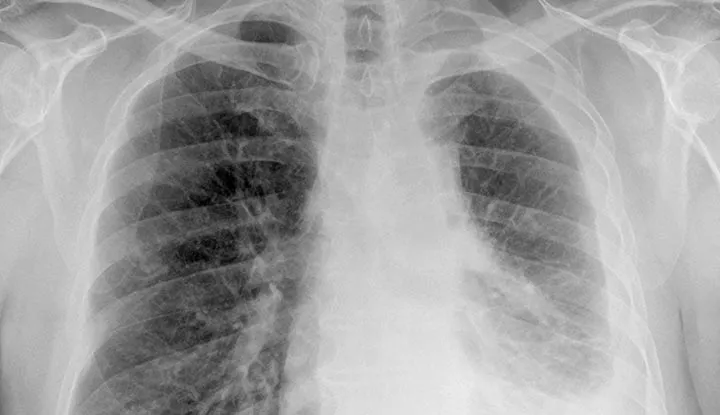'I'm sorry to hear about your Dad' I'm consoled, repeatedly, on my arrival back to work. Inevitably, the conversation leans to the fact of his dying - not in a chair watching a view with a beer, a stroke whilst swimming, or dying in ones sleep, but in abject pain due to what they call asbestos lung, or mesothelioma. This information is followed by a sharp intake of breath (ironically) - everyone knows it's a brutal way to go.
As usual, the story of asbestos is the story of industry versus public health. It's similar to what they're discovering now about engineered stone from kitchen benchtops causing silicosis, or the opioid crisis in America.
In the early 20th century, the silicate in asbestos made for a durable, flexible and heat resistant building material in construction. The largest asbestos mine started in 1937 in Wittenoom, Western Australia, produced large quantities of crocidolite, also known as blue asbestos - the most dangerous form as it had really fine, needle-like fibers that could easily become airborne and inhaled.
Post war, it was the affordable choice for a booming construction industry and ended up everywhere - in homes, schools and public buildings, and is still being carefully removed from old buildings today. No one really understand the health risks until decades later when people started showing up with asbestosis, lung cancer, and mesothelioma and by the '60s and '70s, people started really understanding it in scientific and medical communities. In Wittenoom, despite the closure of the mine in '66, industrial negligence had done it's job on thousands of people who were suffering from the successes of industry that had known about it's dangers but did nothing to stop it, regulate, or protect people.
Dad's exposure was likely due to being on CUB building site in Melbourne - a brewery who was renowned for having asbestos on site. Dad was a draftsman, so would have likely inhaled asbestos whilst measuring up a job. Even though the government and health bodies and industry knew about it, nothing was done to protect him or other workers til the '80's - too late for Dad.
Public pressure and legal action eventually led to securing compensation for thousands of affected workers and their families from the Jamies Hardie asbestos manufacturing plant. They still have a 'pot' to this day for victims, Dad included - though it's small compensation when you are going to die. Mum's sorted, but she won't have Dad around.
Incredibly, it wasn't until 2003 that Australia implemented a total ban on the manufacture, use, and importation of all forms of asbestos.
How industry gets away with continuing to manufacture materials they know are dangerous is just another symptom of a world that cares more about making money than they do about people. Look at the oxycontin crisis brought about by the Sachs family, leaded petrol, thalidomide and birth defects, the tobacco industry and now vapes (which Australia has just banned the sale of).
There's no point our family dwelling about it - between 60,000-152,000 people in Australia have suffered a similar fate since the '50's and since asbestos is still around they reckon the effects of it will last for at least another 100 years. There's any number of ways to die and this is just one of them - there's no point spending the last moments of your life full of regret and anger.
But what makes me personally pissed off is how we continue to put industry over all else, despite knowing the impact it has on public and environmental health.
It just sucks, is all.
